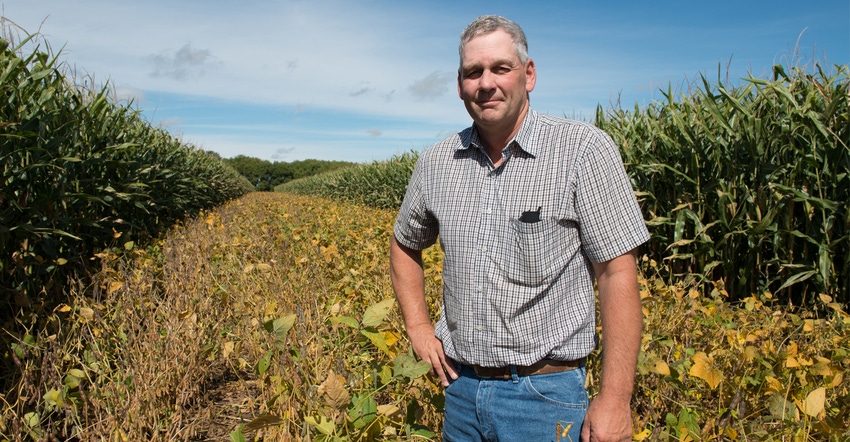July 13, 2018

The Iowa Soybean Association is hosting a 4R Plus field day to help farmers improve profitability, yields and the environment.
The field day will be from 9:30 a.m. to 2:45 p.m. July 31 at the Iowa State University Field Extension Education Laboratory Farm at 1928 240th St., Boone. Farmers, agronomists and others will hear from experts discussing ways to use the 4Rs of nutrient management — applying the right source at the right rate, time and place.
The “plus” part of the program addresses how conservation practices coupled with good nutrient management can help farmers further improve soil health and water quality. The goal is to achieve maximum profitability, yields and environmental stewardship.
Nutrient management, conservation
“This is a very important field day for Iowa farmers, as it will address the latest advances in nutrient management, and soil and water conservation,” says Scott Nelson, ISA On-Farm Network director. “Farmers will leave this event with lots of ideas on how to improve profitability on their farms, as well as protect soil and water.”
The event is free, with lunch provided. Attendees participating the whole day can receive six continuing education credits toward their certified crop adviser certification.
The field day will feature six speakers — two ISU scientists, two ISA experts and two farmers — who will share their research and experiences:
• Scott Nelson, ISA On-Farm Network director, on the 4Rs of nitrogen management
• Antonio Mallarino, ISU professor of soil fertility and nutrient management, on the 4Rs of phosphorous and potassium research
• Steve Killpack, a farmer from Neola, on his insights into the profit-improving practice of variable-rate nitrogen application
• Rick Cruse, ISU agronomy professor and director of the Iowa Water Center, on practices that can help reduce soil erosion from Iowa fields
• Keegan Kult, an ISA environmental scientist, on edge-of-field practices that can help prevent nutrient loss
• Dean Sponheim, a farmer from Nora Springs, on 20 years of struggles and eventual solutions to implementing conservation practices
“I’m going to try and save other farmers a lot of headaches and let people know about the practices that will work in multiple areas of the state,” Sponheim says. “What we’re doing on our farm dovetails into the 4Rs and applies to all of them. There are things farmers have been doing that work for both conservation and economic reasons.”
Be patient, make it work
Sponheim’s first effort at using a strip-till planting system was in 1999. He made a strip-tillage pass in soybean stubble in the fall, and then planted corn into the strips in the spring. That was a success. But the first time he tried strip-till planting into cornstalks, it didn’t work well. Eventually he made some equipment changes, and he talked to other strip-till farmers. Now, it’s working well. He leaves crop residue on all ground except the strip where the seed is planted. Cover crops fit well with this system, and it improves soil health and quality over time.
“You have to be patient,” Sponheim says. “Accept the challenges of your conservation cropping system and talk to experienced no-till and strip-till farmers. You can learn to make conservation systems work.” He applies nitrogen as a sidedress. He’s also experimenting with strip-cropping, alternating eight rows of corn and eight rows of soybeans across the field. That system can improve corn yield by allowing corn to catch more sunlight without depressing the soybean yield.
The field day is sponsored in part by The Fertilizer Institute, Mosaic Fertilizer, the Iowa Agriculture Water Alliance, 4R Plus and the Iowa Soybean Association. Space is limited to the first 150 registrants. To sign up, email Sue Heath at [email protected]. To learn more about ISA, go to iasoybeans.com.
Source: Iowa Soybean Association
You May Also Like




